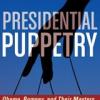| Online: | |
| Visits: | |
| Stories: |

| Story Views | |
| Now: | |
| Last Hour: | |
| Last 24 Hours: | |
| Total: | |
Press, Civil Rights Groups Struggle Against Federal Surveillance, Secrets
Free press and other civil rights advocates encountered several recent setbacks during recent days, including a federal appeals court decision that leaves in place continued mass electronic surveillance of the public.
Separately, the Associated Press (AP) and the Reporters Committee for Freedom of the Press sued the FBI Aug. 27 seeking records on FBI impersonation of journalists and warrantless surveillance to locate a bomb threat suspect.
 Today’s column summarizes the importance of these court battles and the separate recent reverses in the news industry’s ability to serve as watchdog over government. For example, the Columbia Journalism Review (CJR) this week published columns noting the federal government’s resistance to compliance with reporting requests and, separately, the demise of its last competitor, the University of Maryland-based American Journalism Review (AJR).
Today’s column summarizes the importance of these court battles and the separate recent reverses in the news industry’s ability to serve as watchdog over government. For example, the Columbia Journalism Review (CJR) this week published columns noting the federal government’s resistance to compliance with reporting requests and, separately, the demise of its last competitor, the University of Maryland-based American Journalism Review (AJR).
This editor spoke about these developments at a meeting of the American Society of Journalists and Authors (ASJA) Aug. 28 at the National Press Club and also the previous evening during a cablecast news interview by RT. News reports relevant to these themes are appended to this column.
After Edward Snowden’s whistleblowing in 2013 about abuses against the public by the National Security Agency (NSA) we published Backgrounder on Obama’s Big Data Domestic Spying System.
Last month, we published Feds Crushed Telecom CEO Who Protected Customer Data from NSA Snoops…But He’s Back, Protesting New Reform Law, a chilling first-person report by former major telecom executive on why recent “reform” legislation will not protect the public against pervasive electronic service by the federal government — and use of the data to prosecute for political reasons innocent people regarded as impediments to the state.
In the surveillance case, a three-judge panel of the District of Columbia U.S. Circuit Court of Appeals court ruled Aug. 28 that a trial judge exceeded his authority by enjoining the NSA in 2013 from spying on large segments of the public without probable cause.
 An all-Republican panel ruled that plaintiffs in Klayman v. Obama had not proven they were monitored. So, the plaintiffs were denied legal standing for relief against rights violations because they cannot prove the government spied upon them personally in harmful and illegal ways.
An all-Republican panel ruled that plaintiffs in Klayman v. Obama had not proven they were monitored. So, the plaintiffs were denied legal standing for relief against rights violations because they cannot prove the government spied upon them personally in harmful and illegal ways.
The judges ruled 2-1 that plaintiffs should be permitted to try to prove their standing in future proceedings in advance of the ultimate argument on whether the spying is unconstitutional.
Yet the ruling acknowledged also a potentially unsolvable bureaucratic problem for the plaintiffs (sometimes referenced elsewhere as a Catch 22, derived from a novel by that name): The government has created a “State Secrets” protection preventing citizens from pursuing discovery to learn about arguably illegal spying against them. Therefore, the ability to sue under tight “standing” requirements becomes almost impossible, except for an occasional inadvertent disclosure via such means as investigative reporting.
In December 2013, U.S. District Judge Richard Leon had issued an injunction against further spying in the case brought by legal gadfly and former federal prosecutor Larry Klayman. The injunction has never been enforced, and the appellate action this week removed an immediate threat the NSA would be forced to stop the spying. The court majority did not rule on the legality of the NSA’s program although one judge, David Sentelle, argued that the suit should be dismissed outright.
All three of the appellate judge and the trial judge are Republicans. A former aide to Sen. Jesse Helms (R-NC), Sentelle was especially empowered during the 1990s as the longtime supervisor of independent counsels that spent tens of millions of dollars investigating the Clinton administration. Sentelle also traveled widely across the nation then as one of the nation’s most ardent recruiters for the ultra-conservative Federalist Society.
That history represents yet another quirk in court procedures that are ostensibly politically neutral once judges attain their lifetime appointments and other powers. It is not partisan to note such curiosities, if not irregularities.
Indeed, our experience at the Justice Integrity Project has been that tea party, Republican-oriented conservatives are especially outspoken in defense of historic constitutional norms that a bipartisan establishment seems increasingly willing to discard in a zeal to foster a national security state ostensibly focused on imprisoning suspected Arab terrorists but readily adapted to prosecuting anyone for political reasons once constitutional safeguards and independent news reporting are gutted.
Source: http://www.justice-integrity.org/faq/882-press-civil-rights-groups-struggle-against-federal-surveillance-secrets



